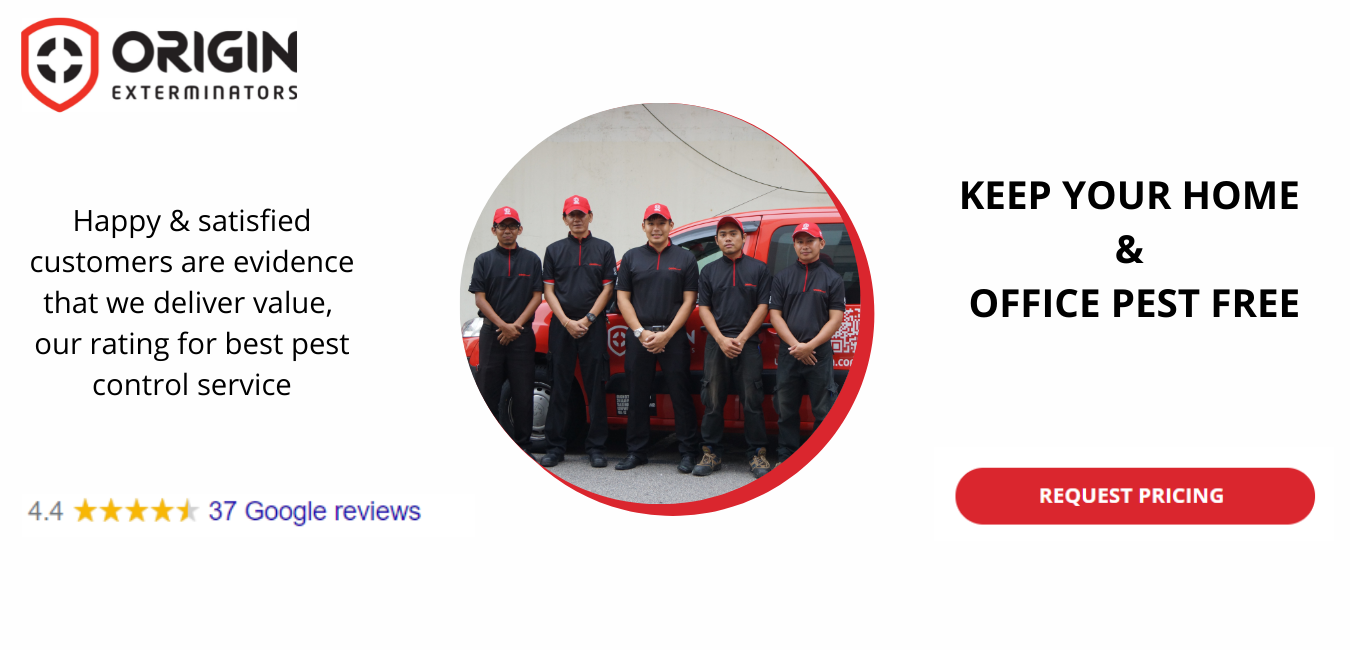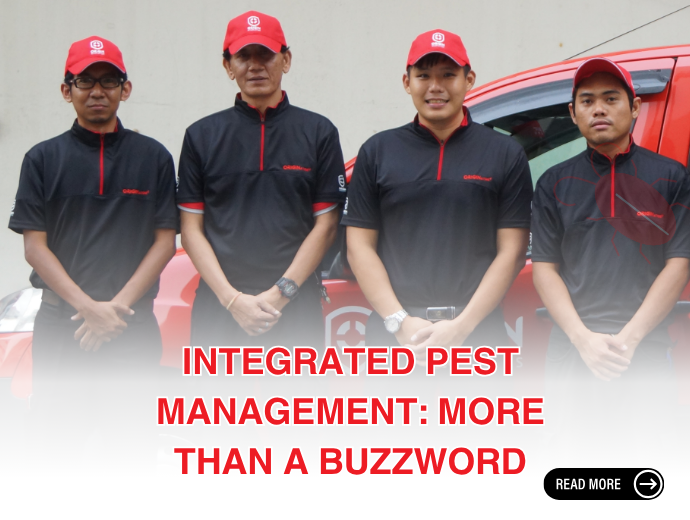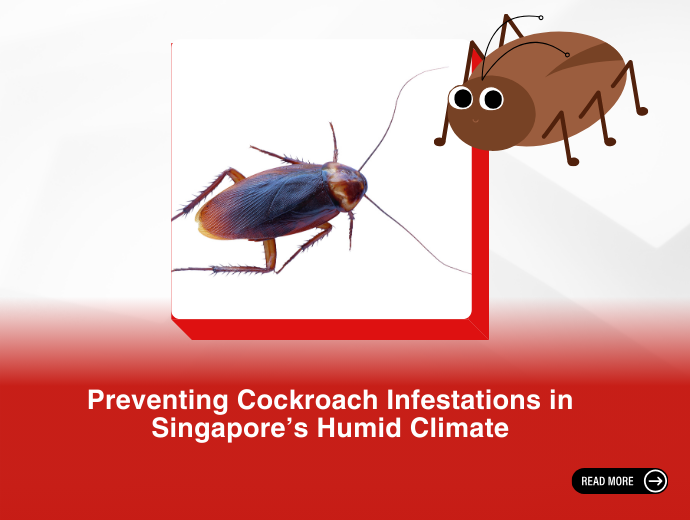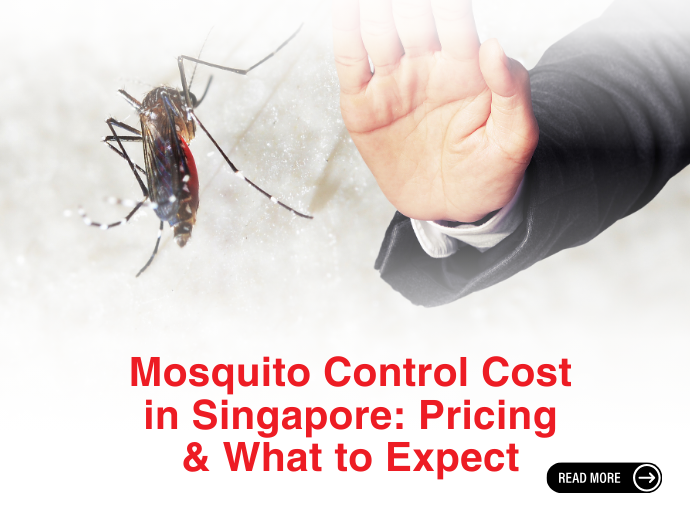Pest Management in densely populated, modern Singapore requires a smarter, reliable, and responsible approach to manage the pest problem. For the persistent insect infestation in our tropical city-state, spraying chemicals isn’t enough. Moreover, the challenge is to address environmental sustainability, hygiene standards, and protect public health. Enter Integrated Pest Management (IPM) —a science-backed and holistic strategy changing the pest control game.
But watch out! Integrated Pest Management isn’t limited to being a trending buzzword. It’s a scientific methodology that combines an eco-friendly approach to control pests and ensure long-term prevention. By applying environmental, biological, and chemical tools, IPM is emerging as a go-to option (or the ONLY option) that aligns with Singapore’s unique climatic conditions, environmental regulations, and demanding public health goals.
An Insight into Integrated Pest Management: Beyond the Spray-and-Move Approach
IPM is not the usual single method strategy to deal with pests, but a series of pest management assessments, treatment choices, and control measures. Unlike the traditional approach that focuses solely on routine pesticide application, IPM emphasises:
- Identification of pests accurately: One can easily confuse insects like ants and termites, house flies and fruit flies, types of rodents, and so on. Therefore, by identifying the exact pest problem, IPM ensures targeted control.
- Continuous inspection and monitoring of pest populations: The method relies heavily on closely monitoring the early signs of infestation or pest activity. They also identify the potential attractants that host pests, such as water, food, or shelter.
- Novel prevention measures: IPM primarily curbs infestations through exclusion techniques and habitat modification. Sanitation issues are addressed, and other steps are taken to ensure a clean environment unfavourable for pests.
- Effective control techniques: IPM prioritises mechanical and biological strategies like natural predators or traps, but when pest infestations persist, it resorts to chemical treatments.
Finally, this comprehensive approach not only curbs pest populations but also cuts down risks to pets, humans, and the environment.
Why Integrated Pest Management Matters in Singapore?
Tropical climate challenges
Contemporary pest control measures generally fall flat in tackling the warm and humid climatic conditions of Singapore. For instance, mosquito infestation and dengue fever caused by them are a recurring threat here.
IPM, therefore, evaluates weather patterns, environmental variables, and breeding cycles to design practical and proactive strategies. For example, IPM techniques won't fog the entire locality regularly, but identify mosquito hotspots, deploy habitat control, and target larvae before they mature.
Urban density and hygiene
Given the country’s dense population with over five million residents and rapid urbanisation of human habitats, including HDB blocks, condominiums, schools, hospitals, warehouses, and commercial kitchens, one-size-fits-all pest management methods often prove inadequate.
Pest exterminators who work with IPM overcome these hindrances by customising different strategies for different pests across various environments. So, whether educating F&B handlers in the hawker centres or sealing all entry points in high-rise buildings, IPM resorts to unique treatment methods for all challenges.
Environmental and regulatory pressures
Agencies like NEA impose strict environmental regulations to ensure better waste management and chemical or pesticide use.
To keep up with robust regulatory requirements and ecological goals, IPM prioritises eco-friendly measures and minimum chemical usage. Aligning with the country’s growing sustainability agenda and zero-waste goals, the treatments revolve largely around biological control agents, pheromone traps, and heat treatment.
Industries That Benefit Most from Integrated Pest Management in Singapore
Food & Beverage (F&B)
Singapore has a vibrant hawker culture coupled with strict food safety protocols. To maintain both, the pest management providers in this segment need to be effective, discreet, and non-toxic. IPM plays a major role here by maintaining both hygiene and food safety.
Hospitality and Tourism
Serviced apartments, holiday rentals, hotels, and resorts can’t afford negative reviews on their platforms, especially when it involves pests! Thanks to IPM’s preventive strategies and non-invasive measures, these businesses can enjoy five-star cleanliness goals!
Healthcare Facilities
Well, no surprises here, but patients in hospitals and clinics require chemical-free pest management treatments. With their targeted interventions, IPM delivers maximum safety with minimal disruptions.
Property Management
From condominiums to warehouses, shopping malls to mixed-use developments, IPM provides long-term pest management benefits. In this segment, they inspect, educate, and carry out maintenance work to curb both infestation and customer or tenant complaints.
Three Major Misconceptions About Integrated Pest Management
Despite its effectiveness and proven success rate, several misconceptions do the rounds among several Singaporeans:
"IPM is super expensive."
Yes, initial investment in IPM might seem higher than other measures because it requires expertise, precise monitoring tools, and more planning time. But, in the long run, it will be profitable and beneficial! Wondering how? Well, it prevents re-infestation and reduces damage to property and prestige.
"IPM doesn’t use chemicals."
Chemical use is IPM's last resort to tackle difficult pests. However, when used, they are handled in a strategic and targeted fashion. These services have proven to be a boon in sensitive settings.
"IPM is slow."
IPM focuses on long-term pest management, and its undertakings are deliberate but not slow! These novel treatment programs are known to address the pest problems before the infestation could blow out of proportion!
How ORIGIN Exterminators are emerging as Singapore’s IPM Trailblazer
ORIGIN Exterminators are amongst the first few pest control providers that truly subscribes to Integrated Pest Management in Singapore. It does this through its unwavering commitment to sustainable measures, scientific treatment, and health-conscious pest management sets us apart.
While several other pest management agencies claim to provide IPM services, ORIGIN backs its treatment with proprietary systems, real-time data, and expert biologists and entomologists who ensure a customised plan for every client. A few highlights of our IPM approach include:
- Monitoring technology and pest analytics to track pre-empt outbreaks and pest trends.
- Non-toxic treatments, including steam, heat, and biological agents, safeguard sensitive premises like hospitals and preschools.
- Educative solutions that make clients more aware of pests and their prevention.
To stay ahead of pest infestations and other providers in the Integrated Pest Management sphere, ORIGIN partners with government agencies and research institutes to keep up with emerging technologies and methodologies. Our level of work, care, and responsibility has a far-reaching impact on clients, as our strategy goes beyond eliminating pests—it revolves largely around maintaining the health and well-being of Singaporeans.
IPM: What Does the Future Hold?
In Singapore’s quest to rank top among the Smart Nations, its approach to handling the pest problem needs smart moves too! IPM fulfills the need of the hour by supporting our country’s vision by employing technology, data, public health concerns, and eco-consciousness. Moreover, in a few years, we expect IPM to evolve with even greater integration of IoT, AI, and predictive analytics. At ORIGIN, we are already steering in this direction, hoping to set a standard for other agencies.
Conclusion
IPM: Not Just a Buzzword but Business Essential
So, do you still think Integrated Pest Management is just a feel-good phrase or a gimmick to attract more clients? Well, it’s a proven, scientifically backed, highly effective, and eco-friendly pest control technique that is gradually bringing a revolution in the urban Singaporean environment. Furthermore, in modern times when consumers seek transparency and regulations are more stringent, IPM becomes more than essential!
At ORIGIN Exterminators, we show that pest control can be smart, effective, and sustainable. If you are seeking better solutions in your home, facility, business, or neighbourhood, know that Integrated Pest Management isn’t the best choice—it’s the best and smart choice.
Click here to get a free IPM consultation for your pest issues!




.png)
